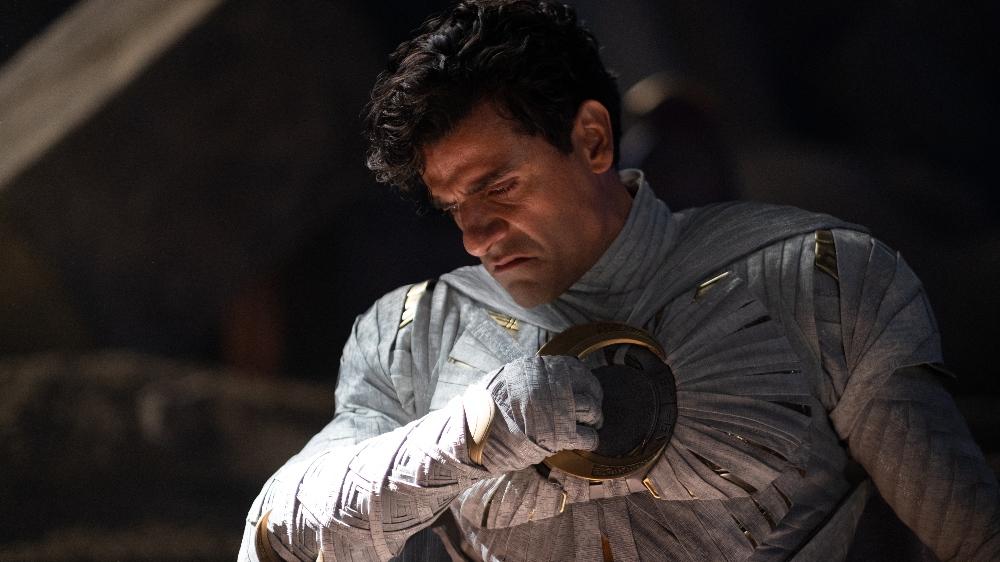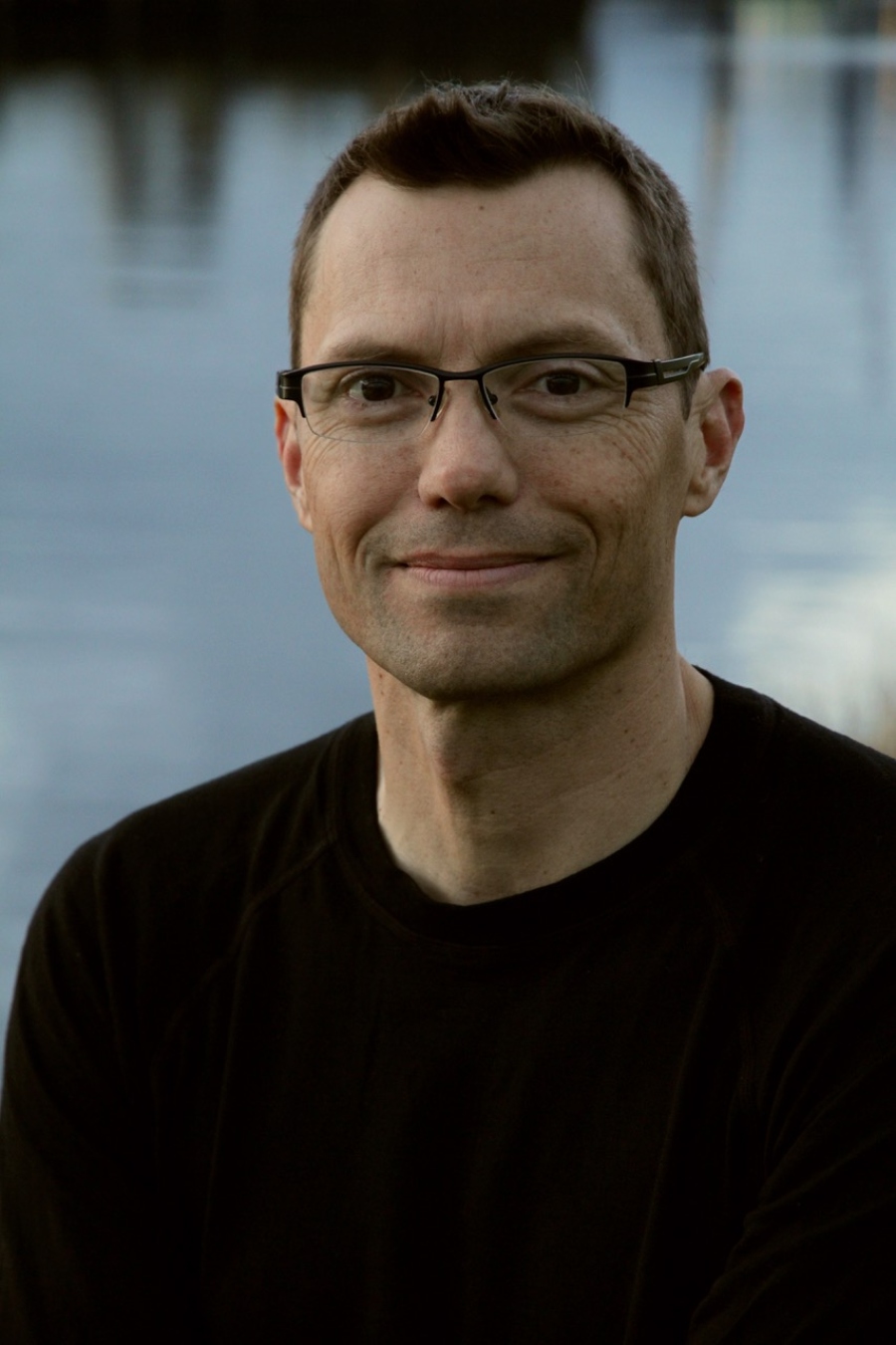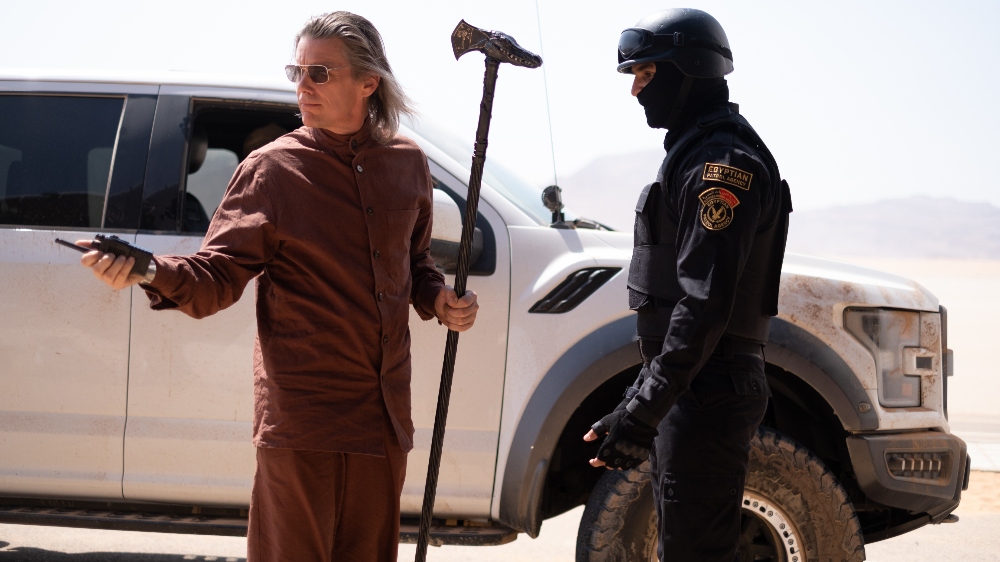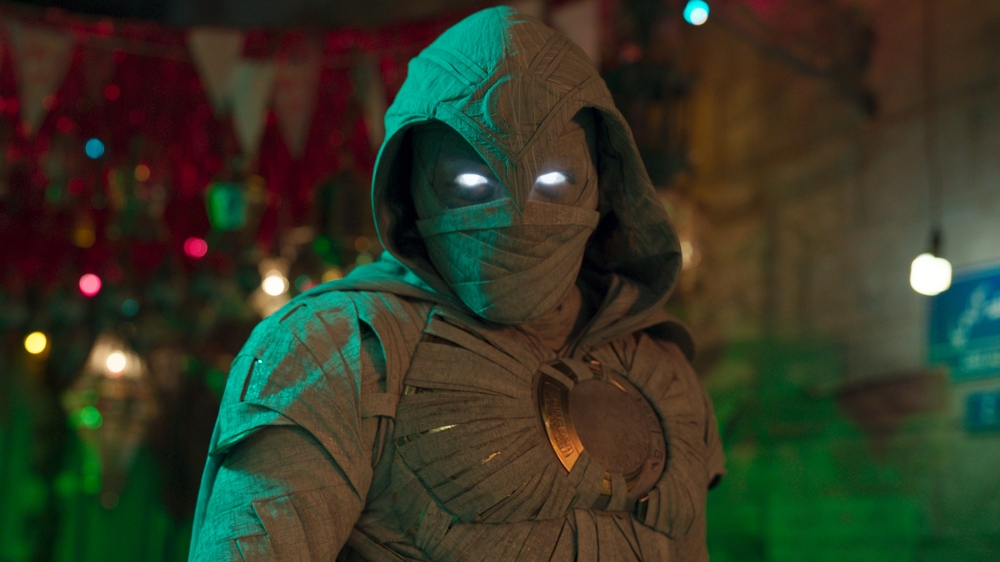
Cinematographers usually land their next job from producers or directors they worked with on a previous show. But that wasn’t the case for Gregory Middleton, the veteran Canadian director of photography whose many credits date back to 1992 and include Game of Thrones, Watchmen, Fringe, The Killing, and now, Moon Knight. The six-episode limited series just concluded on Disney+, though when it comes to the MCU, I doubt this is the last we’ll see of Oscar Isaac as Marc Spector/Moon Knight and Steven Grant/Mr. Knight, a mercenary with dissociative identity disorder who is pursued by Arthur Harrow (Ethan Hawke), a wizard-like cult leader seeking an artifact he thinks Marc/Steven possesses.
“This was a rare instance where I didn’t know anyone involved with this project from the beginning,” Middleton said of Moon Knight during a recent Zoom call with Below the Line. “I didn’t know [director] Mohamed [Diab] or Marvel, but they really liked my work on Watchmen, especially Episode 6, the black and white journey, because there’s an element of first-person storytelling to this. They thought, ‘Oh, we should definitely put him into the pool of people.’ They let Mohamed meet a bunch of people and ended up picking me.”
Middleton made it a point to study the Marvel comics before his interview for the high-profile gig, and in our exclusive conversation below, he talks about visualizing Moon Knight’s duality theme and how his Game of Thrones experience helped him handle the massive scope of the latest Marvel series.

Below the Line: You’ve worked on huge shows before like Game of Thrones and Watchmen, so how does Moon Knight compare?
Gregory Middleton: I’ve done everything I’ve ever wanted to do in any show on this show. It’s like a grab bag of absolutely everything. We have location work, virtual sets, real sets, animated characters, twinning — which I’ve done before in something else, and [it was] quite challenging for Oscar [Isaac] to play both characters. It was an incredible amount. There was no easy scene. It’s him at a desk and he’s on the phone. This is one thing. It’s like every scene. ‘Oh, yeah, we’re here. It’s a new location.’ The scripts were incredibly ambitious, but that’s also what makes it amazing to read. You read it and you’re a combination of petrified and terrified, but also excited because the story is moving so quickly. We’re going to all these different worlds. We have to craft a beautiful visual journey for the audience through amazing places and that’s incredibly exciting.
BTL: How well did you know the comics beforehand? And how much prep time did you have with Mohamed and executive producer Jeremy Slater?
Middleton: I didn’t have much time with Jeremy. Actually, [it was] mostly Mohamed. When I was interviewing for the project, I researched the comics as much as I could because I’d been familiar with them but not that much. I knew we would be adapting and putting our own spin on it, to create it as a visual thing. I pretty much read as much as I could. I read a bunch of synopses and watched a lot of YouTube videos of histories and stuff to get a flair for all the elements that will be in the story. Then, I can use that as a background when I read the script. I read the script and then the next meeting was my first meeting with Mohamed. What is the vision that we [want] to apply to this? It’s a brilliant idea to put us into this situation where we experienced the first episode from Steven’s point of view. Each episode is almost a different genre, which I find really exciting. The story takes twists and turns. As the audience is on it, they don’t know what journey they’re on. Steven doesn’t know what’s going on in the beginning. It goes from endearing and funny to kind of scary. In the end, he’s in the washroom and he is generally terrified. He thinks he’s going to die, and you now care about this character. To do all that in that script?

BTL: Many of the visuals here tie into the concept of duality, and that manifests on-screen as Marc and Steven see each other in reflections. How many different ways did you say, ‘We can see him in the water, in the mirror, in this rock, in this window?’
Middleton: When you do that sort of work, it’s a team effort. When you have a concept like that, you try and get the camera operators, set designers, set decorators — everybody — in on this idea that we’re going to always look for these opportunities. Some are very specific in the script, where we know that’s going to be Marc and this is Steven. They’re scripted that way, in the bathroom or in the museum near the end, where he walks by the crocodile and his reflection doesn’t move. That’s where the artist is like, ‘Wait a second.’ That’s something we had to pre-viz and work out carefully. A lot of other times it’s like, ‘Well if we do that, we want to always have more,’ because you’re going to then doubt whether it was Steven in that reflection. Or was that Marc? When he goes to talk to the guy at the front desk of the museum, there are two reflections. We shot that with the reflection. There are two Stevens and him.
You’re going to start to think about that all the time. That also means, as later we find out, that Mack can spy — or the personality in the reflection — could spy more easily, which makes you think of another layer. You do all these things to let the audience have this extra element of wondering, ‘Was he there then? Was he not there then?’ I also express that Steven is not a complete character. When he talks to the little girl, I tried to deliberately put him in split frames so that she’s outside and he’s in the glass because he’s half a person. You never know if that’s going to track psychologically, necessarily, but you just always look for opportunities.

BTL: You shot in Budapest, Jordan, Slovenia, and Atlanta. That meant different crews, permits, languages, and existing buildings. How tough was it to juggle that?
Middleton: I was very fortunate to work on Game of Thrones for years. That was one of the first times I’ve worked on a sizable show with other cinematographers. When you jump around to different places, we’re all collaborating. I shot four episodes. Andrew Palermo shot two episodes. Russell Carpenter shot the stuff in L.A. We would always make sure we were talking to the people that were doing the other half of it. Andrew and I would plan sets together, things like that. That can keep it cohesive, even though it seems like it’s all over the place. We don’t often get to work as a team, cinematographers, but on something like this we actually do.
BTL: How pleased are you with the finished series if you can be at all objective?
Middleton: I find it so difficult to be objective because I’m always looking at the things I didn’t finish or want to change. I’m the worst person to ask for an objective opinion. I’m always trying to improve it on the day. I cannot see it later and go ‘Oh, yeah, I could have done maybe that.’ I am proud of the show. I’m very excited that it’s had the response it has and people are excited about it. It’s moving people, which I’m excited about.
Moon Knight is now streaming in its entirety on Disney+.





